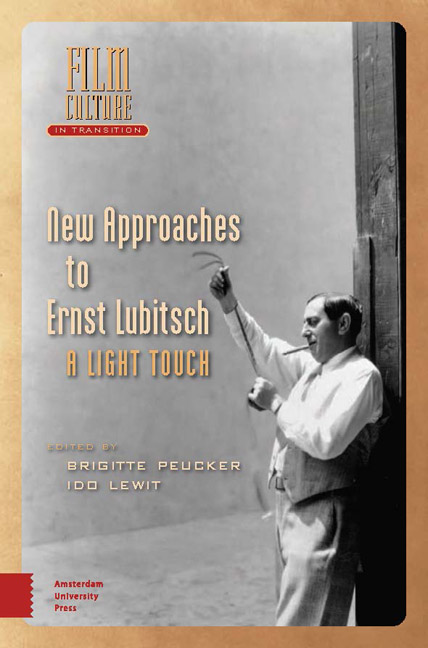14 - Chaplin / Lubitsch / Chaplin : Influence and Counter-Influence in A Woman of Paris, The Marriage Circle, and A Countess from Hong Kong
Published online by Cambridge University Press: 16 April 2024
Summary
Abstract
This essay traces the contours of Charlie Chaplin's sizable influence on Ernst Lubitsch via his dramatic feature A Woman of Paris (1923) and its various echoes in The Marriage Circle (1924). In A Woman of Paris, Chaplin offered a sophisticated cinematographic language marked by inference, implication, and deliberate equivocation. It was Lubitsch who turned this visual system toward subtly comedic ends, crystallizing elements of the famed “Lubitsch touch.” In so doing, he, in turn, influenced Chaplin, whose A Countess from Hong Kong (1967) offers a remarkable, late-career instance of artistic counterinfluence, a Chaplinesque take on a classic Lubitsch comedy.
Keywords: Charlie Chaplin, A Woman of Paris, The Marriage Circle, A Countess from Hong Kong, influence and counter-influence
Were it not for Charlie Chaplin, Ernst Lubitsch's Hollywood career might have ended after a single film. By Lubitsch's own account, Chaplin's 1923 dramatic feature A Woman of Paris gave him hope for the possibilities of sophisticated Hollywood picture-making after what he perceived to be the failure of his first American feature Rosita (1923). As he told The New York Times at the time, “I like it because I feel that an intelligent man speaks to me and nobody's intelligence is insulted in the picture.” Lubitsch saw the film alongside the scenarist Paul Bern during the summer of 1923, invited to view an early rough cut by Chaplin himself, and would regard the experience as transformative, telling his biographer that he “would have returned to Germany” were it not for that film. For years afterwards, he would continue to sing its praises, comparing Chaplin to Moliére, Ibsen, and others. “‘The Woman of Paris’—a masterpiece—such genius— such genius,” he effused to one reporter. Any filmmaking system, and any filmgoing public, that could support such a film could surely accommodate the mode of sophisticated comedy he envisioned.
Lubitsch's extensive praise for A Woman of Paris was not just a matter of abstract admiration. Within months, the impact of that film would be felt within his own work.
- Type
- Chapter
- Information
- New Approaches to Ernst LubitschA Light Touch, pp. 267 - 284Publisher: Amsterdam University PressPrint publication year: 2024

